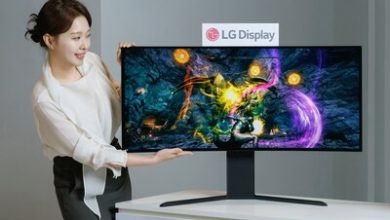WEST PALM BEACH, Fla.–(BUSINESS WIRE)–VISIUM, a leading innovator in Far-UVC technology, today announced its official rebrand from Lit Thinking and the grand opening of its new 5,000 sq. ft. research laboratory at Cornell Tech Park, VISIUM UltraLabs. The new facility will serve as the central hub for the company’s ambitious research program, which aims to achieve critical breakthroughs in the development of Ultra Wide Band Gap semiconductors, as well as produce the world’s first commercially viable Far-UVC LED in the process.
Far-UVC light, specifically at a wavelength below 230 nanometers, has proven to be a standout in public health by safely and continuously inactivating airborne and surface viruses and bacteria. Unlike longer wavelength UVC, it is harmless to human skin and eyes, making it ideal for use in occupied spaces like hospitals, schools, and offices. Named after the company’s flagship device, Visium, is already installed at prominent facilities like Mt. Sinai Hospital, The Miami Dolphins, and Roger Williams University, Rhode Island.
VISIUM UltraLabs’ new research facility will focus on overcoming the limitations of current Far-UVC technology, which relies on expensive Krypton Chloride lamps. The company’s research program is dedicated to creating a dramatically more efficient Far-UVC LED at 230nm. This new technology, based on Ultra-wide Bandgap semiconductors with Aluminum Nitride substrates, will be mass-produced affordably, making Far-UVC disinfection accessible to a much wider range of applications.
“The creation of a Far-UVC LED will drastically increase the adoption of this critical technology by reducing implementation barriers,” said John Rajchert, CEO of VISIUM. “Our research is akin to the invention of the bright blue LED in the 1990s, which revolutionized the lighting industry. We believe our work will have a similar disruptive impact on the world of public health.”
Beyond Far-UVC applications, VISIUM’s research into Ultra-wide Bandgap semiconductors will create valuable breakthroughs for other sectors requiring high performance, high power semiconductors including defense & aerospace applications, power hungry AI data centers, electric vehicles and smart grid systems, to name a few.
VISIUM’s research efforts are bolstered by key partnerships with Cornell University and Nagoya University. This partnership provides access to world-leading researchers, including Nobel laureate Professor Hiroshi Amano who was awarded the 2014 Nobel Prize in Physics for his work on blue LEDs and who also demonstrated the world’s first (and only) UVC laser diode previously with Dr. Leo Schowalter. The long sought and elusive UVC laser diode was enabled by a new approach to electrical conductivity in ultrawide bandgap semiconductors pioneered by Profs. Debdeep Jena, Huili (Grace) Xing and Leo Schowalter. In addition, the strong university collaborations are leveraging funding from the Department of Defense in recognition of the potential of the Ultra-wide Bandgap semiconductors to provide critical solutions.
VISIUM’s CTO, Dr. Leo Schowalter, a Visiting Professor at Cornell, Nagoya University, and UCF, and the former Co-Founder & CTO of Crystal IS, leads VISIUM’s research program. His extensive experience in the field, combined with the academic partnerships and the new lab facility, uniquely positions VISIUM to succeed.
About VISIUM
VISIUM provides continuous air and surface sanitization solutions using Far-UVC technology. The VISIUM technology offers a comprehensive IoT-connected system that ensures safe, effective, and real-time sanitization in various industries, including agriculture, healthcare, education, sports, and more.
Contacts





